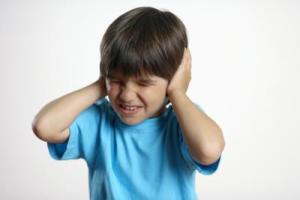 A trigger is the cause and entry point to an escalation. It’s what can potentially light the fuse to dangerous behavior. Due to their deficits our students with autism are prone to experience far more triggers in their day than their typically developing peers. Amongst others, they can escalate because of:
A trigger is the cause and entry point to an escalation. It’s what can potentially light the fuse to dangerous behavior. Due to their deficits our students with autism are prone to experience far more triggers in their day than their typically developing peers. Amongst others, they can escalate because of:
- Loud noises
- Unfamiliar adults
- Smells
- Losing
- Undesired lunch options
- Challenging work
- Being last
- A change in routine
- A pencil breaking
- Getting a problem wrong
- Being unable to communicate what they really want
I am sure you could add a few more to this list yourself. Dealing with triggers appropriately is a key conversation if we are looking to be proactive. We can defuse an escalation at its beginning by never giving it a chance to start. This is done through empowering the learner to either cope with or avoid those things that might cause them to escalate. And it is this empowerment that lands on the shoulders of educators. Any notion that the student just needs to “learn how to deal with it” must be put to rest. As they say, if the learner has not learned then the teacher has not taught. Due to the high number of possible triggers for our kids with autism, we have a great deal of teaching to do. I recommend taking the following steps to help your students through the triggers that they might face:
- List out all of the triggers for your student that have lead to escalations in the past.
- Prioritize which triggers you wish to teach your student how to cope with and which triggers you wish to teach your student how to avoid at this time. If you try to simultaneously teach your student how to cope with every trigger it can be too much . You can get to them all, just not all at once.
- Decide how to teach, generalize, and reinforce the strategies that will help your student avoid or cope with their triggers.
- As your student masters coping with specific triggers, start working on coping strategies for the other triggers that you previously were teaching to avoid.
The planning sheets below can help you with this process. For the Microsoft Word documents of these feel free to email me at patrickmulick@gmail.com and I can send them to you. Work diligently at addressing the triggers of your learners. Your greatest work with behavior change will always be in stopping behaviors before they ever take place.







